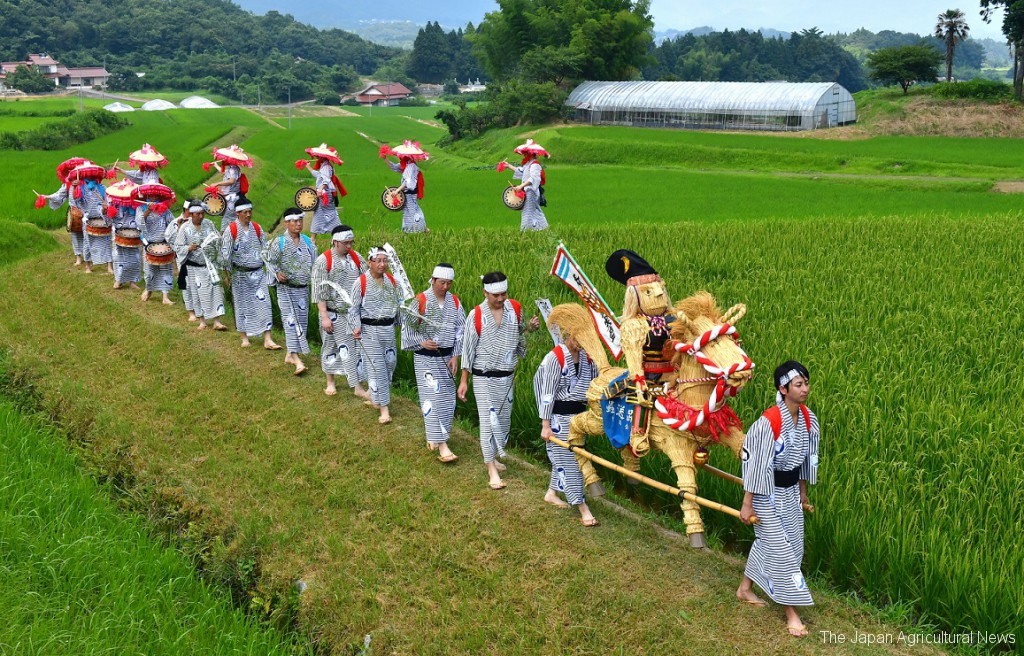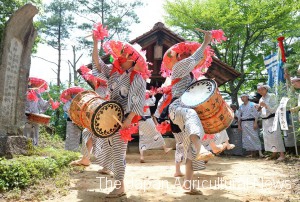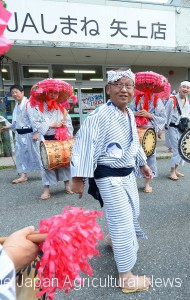July 29, SHIMANE – On July 20 every year, some villagers of Kanekobara, Shimane Prefecture, in summer yukata and with traditional straw hats with paper flowers and perform traditional dance named “Kanekobara no Mushi-okuri Odori,” which literally means “dance to send off insects” in Japanese. The dancers walk around the village to draw insects from the rice fields and flame them at the end of the ceremony.
At 1:00 P.M., a straw-made soldier on horseback called Sanemori-san and 20 male villagers left the Mihoryo Shrine and started the 8-kilometer walk to the Suwa Shrine. Some with banners led the party and the others with traditional instruments such as kane (ching) made of tips of hoes and taiko (drums) followed. They walked along the rice fields to “draw” bad insects.
They also visited shops and streets, occasionally stopping and showing the performance. Six men with large drums danced in a circle dynamically, jumping on one leg, and the audience burst into applause.
The dancers ended the journey to the Suwa Shrine at around 6:00 P.M. At the end of the entire ceremony, they took the paper flowers and strips from the drumsticks and straw hats and burnt them together with the bad insects, which are believed to be drawn to the decorative papers.
The ceremony with over-200-year tradition is one of the oldest of this kind. In 1967, it was designated as an Intangible Cultural Property of Japan. The model of the straw doll is Sanemori Saito, one of the fallen Heike-family warriors. During the battle in Shinohara, he lost his footing on a stump of cut rice and then he was captured. With his last dying breath, he vowed to become a rice-eating insect and devastate the rice in his afterlife. The ceremony is said to begin to appease his soul.




